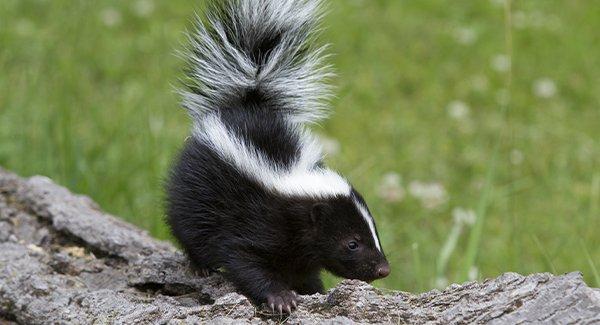Maine is home to some of the most magnificent wildlife in North America. While big game animals like moose and black bears tend to get the spotlight, the truth is, an immense range of wildlife resides in the Pine Tree State. Unfortunately, a few species have a penchant for inhabiting homes and property where they cause problems.
Dealing with ants or spiders in your home is one thing, but wildlife is another story. If you’re wondering how to deal with spring wildlife in Southern Maine, here’s what you need to know.
Common Nuisance Wildlife In Southern Maine
When we talk about nuisance wildlife, there are a few culprits that come to mind:
- Opossums will often find their way into sheds, attics, or underneath porches. These large marsupials can cause a number of diseases including leptospirosis, tularemia, and tuberculosis. They can also carry harmful parasites that transmit their own host of diseases.
- Raccoons are bold pests and make no secret about their presence. You will certainly notice telltale signs of raccoon infestation like overturned trash cans and torn screens if you don’t hear them clamoring in your attic or walls. They are aggressive, known to bite and scratch, and can transmit rabies to you and your pets.
- Woodchucks are the bane of many Maine gardeners. Also known as groundhogs, these large rodents will raid vegetable patches and cause extensive damage to lawns and landscaping. Woodchucks are capable of biting but are not aggressive and rarely do.
- Skunks are infamous for spraying foul-smelling liquid on those foolish or unfortunate enough to threaten them. They can burrow under your porch or shed to build their home and will gladly rummage through your garbage, garden, or pet food. Skunks can carry rabies and have been known to bite.
Problems Wildlife Can Cause On Your Property
Nuisance wildlife can cause a number of problems on your property and each particular species presents its own dangers. But generally, having wildlife pests in your home or yard causes three main issues:
- They destroy property – You’ll find yourself spending an unnecessary amount of time cleaning trash strewn across your yard if you’ve got raccoons. Opossums can contaminate your attic or shed with their droppings and woodchucks have been known to chew up sheds and other wooden structures.
- They spread disease – Many species of wildlife are known to carry rabies which can be dangerous for humans and pets alike. Wildlife droppings can contain harmful pathogens that lead to a variety of diseases, and many species carry dangerous parasites like ticks and fleas.
- They disrupt your life – More than anything, the presence of wildlife on your property prevents you from comfortably living your life. The stress of knowing you have an infestation of large pests can ruin your quality of life and affect sleep, mood, and even job performance.
How To Deal With Spring Wildlife Problems
- Seal off entry points – Ensure that there are no routes for wildlife to enter your home. Inspect your property for any gaps or openings and repair as needed. Consider putting a cap on your chimney if possible.
- Keep garbage sealed – Keep trash away from the house and stored in sturdy receptacles with tight-fitting or locking lids. Try using a metal bin to deter rodents and other wildlife with powerful teeth.
- Reduce food sources – Don’t leave out any treats that might attract wildlife. Pet food should be stored indoors or in a secure container. Rake up any nuts or fruit that fall on your property and never leave food or opened garbage bags unattended, especially overnight.
The best thing you can do to deal with wildlife problems on your property is to contact the experts at Big Blue Bug Solutions. We will safely and humanely remove the nuisance wildlife inhabiting your home and prevent wildlife from returning. For questions or assistance with wildlife problems in Southern Maine, contact us today.

